Episodes
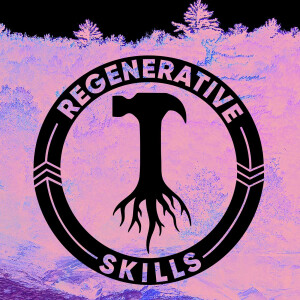
Friday Jun 17, 2022
Friday Jun 17, 2022
Just as promised from last week’s episode exploring the wide and unknown varieties of fruit and nut trees for cold climates, we’re going to go deeper into getting forest gardens established in frigid zones.
It turns out there are tons of planting options for people who live in hardiness zones 6 and below. There are even some advantages in maintenance and pest pressure since you get a long dormant season and the low temperatures prevent a lot of warmer climate pests from reproducing.
To learn more about all of the unique benefits and challenges of getting a diverse forest garden established in the cold north, I reached out to Dani Baker, the co-owner of Cross Island Farms on Wellesley Island in the St. Lawrence River between New York and Canada, where they raise certified organic produce and grass-fed beef and goats. Dani and her husband David purchased the 102 acre farmstead only after retiring from their careers. They became intrigued by the idea of making the land productive again, while being good stewards of the land and water resources entrusted to them.
Dani a self-taught gardener who learned her craft by immersing herself in reading, poring over nursery catalogs, attending workshops on permaculture and gardening, and enthusiastic trial-and-error experimentation. Dani now conducts workshops and tours at her edible forest garden as well as giving presentations at organic farming conferences and other venues.
In this interview, Dani and I start by talking about what inspired her to start a forest garden after retirement and how she built up her knowledge and experience so quickly.
We then dive right into the practical aspects of how she worked to get the wide variety of perennial species established on her heavy clay and waterlogged site. She also gives insights into pest and disease management, her long term maintenance strategies for the system, the plant guilds that she’s found success with, and a lot more.
Be sure to stick around till the end where Dani gives great advice on managing volunteers and how to get started planting your own forest garden at any scale.
Join the discord discussion channel to answer the weekly questions and learn new skills with the whole community
Links:
http://www.crossislandfarms.com/
https://www.enchantededibleforest.com/
https://www.chelseagreen.com/product/the-home-scale-forest-garden/
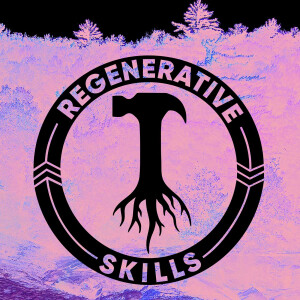
Friday Jun 10, 2022
Friday Jun 10, 2022
There are so many interesting perspectives to approach this topic from and today we’re going to hear from two people who turned a personal love of plants into a thriving botanical garden and nursery.
Allyson Levy and Scott Serrano started creating a botanical garden in their backyard 22 years ago by planting native trees, shrubs, perennials and unusual edibles. Soon after they became interested in bog plants, hardy cacti, woodland species and non-native trees as well. T
ogether they fenced in 3 acres, made tags to identify the species they had, and recorded what they planted over the past decade with the intention of one day being a public garden and an educational resource.
Jump to today and the Hortus Arboretum and Botanical Garden boast an amazing collection of both native and exotic species. They also propagate rare and unusual plants from their collection to sell, to help spread plant diversity around.
In all of this variety Allyson and Scott have discovered a wide range of fruit and nut species that can thrive in their cold New York climate, and that’s exactly what we focused on in this interview.
Their new book, “Cold-Hardy Fruits and Nuts” is a one-stop compendium of the most productive, edible fruit-and nut-bearing crops that push the boundaries of what can survive winters in cold-temperate growing regions. While most nurseries and guidebooks feature plants that are riddled with pest problems (such as apples and peaches), Allyson and Scott focus on both common and unfamiliar fruits that have few, if any, pest or disease problems and an overall higher level of resilience.
In this interview we cover a wide range of information from the unique and hardy plants that do well in cold-temperate climates themselves, but also their amazing journey of discovering them.
We also talk a lot of practical plant care techniques, design and placement considerations, and then we get going into the world of plant nurseries and all their discoveries about propagation and managing the business side.
This was such a fun discussion and I’m already looking forward to the next time I can speak with Allyson and Scott, so if you are left at any point during this interview with more questions, be sure to reach out to me so I can get them answered for you the next time I get them on this show.
Join the discord discussion channel to answer the weekly questions and learn new skills with the whole community
Links:
https://www.hortusgardens.org/
https://www.chelseagreen.com/product/cold-hardy-fruits-and-nuts/
https://www.instagram.com/hortusgardens/
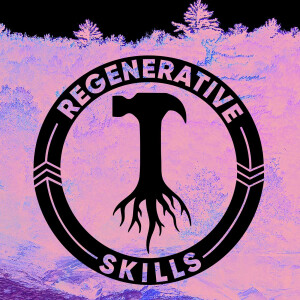
Friday Jun 03, 2022
Friday Jun 03, 2022
Welcome to a brand new series. Over the next months we’ll be exploring a wide variety of perspectives and knowledge about tree planting, agroforestry, forestry management, and everything to do with woody perennial species.
In the last couple years you’ve probably seen tons of articles and promotions about reforestation and tree planting initiatives around the world. Many of these are tied to specific climate change mitigation metrics as it becomes more and more apparent just how vital trees are for the health of life on this planet.
You may have also seen a lot of critical hit pieces about the inefficacy of many of these same planting projects when they’re poorly planned or executed. It turns out you can’t just go throwing any old tree in the ground anywhere and hope that it’ll either survive, thrive, or have a beneficial impact on the local ecology.
The need for better planting project planning, based on essential environmental observations and long term maintenance plans are the difference between catchy programs with big numbers attached to them, and initiatives that actually grow trees and can transform the health of the environments and communities where they’re grown.
There are so many good reasons to integrate trees into the majority of our landscapes and today I’m going to kick this series off by looking at the advantages from an investment perspective of planting profitable agroforestry systems.
In order to explain the complexities of financial modeling for perennial agriculture systems, I caught up with Harry Greene.
Harry is the Cofounder and Chief Investment Officer for Propagate Ventures,an agroforestry investment platform focused on bridging the capital and operational needs to integrate tree crops into farmland. They’ve built agroforestry analytics and project development tools to support farmers in the design, implementation, and management of tree-crop systems to increase farm profitability and ecological capacity.
By partnering with operational farms and internationally-renowned farm designers, they work to implement realistic, functional agroforestry solutions. Propagate works within their partner farmers' operational requirements, conventional or organic, to deploy proven agroforestry practices. From ranches to small family farms to large-scale grain operations, they help to find a solution that fits for any farm business.
Harry has also traveled around the world researching agroforestry systems and traditions.
In this episode we cover a really wide variety of topics. Harry starts by explaining the origins of Propagate Ventures and how he and his partners saw an opportunity to make a strong investment case for tree based production systems.
From there we go into the barriers that growers and investors face to starting agroforestry systems and some of the solutions to getting past them.
We also talk about the tools that their software Overyield makes available when planning the potential profitability of a new agroforestry investment, and some of the key considerations that are automated in the platform.
This talk is a lot more than the business and financial case for planting trees on farms. We go deep into the practical considerations of planting at different scales, the amendments and assistance that can help trees survive the first crucial years, the many configurations of tree planting that can compliment rather than hinder other farm enterprises and a whole lot more.
Join the discord discussion channel to answer the weekly questions and learn new skills with the whole community
Links:
https://www.overyield.com/
https://propagateag.com/
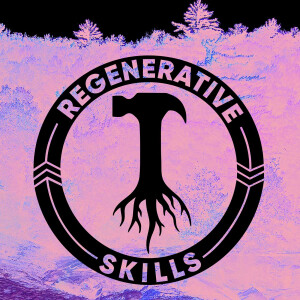
Friday May 27, 2022
Friday May 27, 2022
Today is the last episode of the series on building community. Though there remains so much to say on this subject, I wanted to wrap up this endlessly complex and nuanced topic with a discussion about the challenges and learning of integrating into a foreign community. I have a lot of my own thoughts and stories on this, but I also immediately thought to check back in with a friend of mine who’s been on this show before in a previous series on homesteading, and who’s had similar experiences which he’s developed much much further than I ever have.
Zac Barton is a permaculture designer, activist and teacher who has been living in Nepal since 2003. In 2005, he founded the Kamala Foundation—an organization committed to bringing the principles of permaculture to life and providing community-based programming to cultivate resilience and revitalize traditional and ecological ways of being.
He established Almost Heaven Farm in 2013, where he researches, demonstrates and trains local farmers and international visitors in permaculture design, earth-based building and ecological restoration. Specializing in program design and implementation, Zachary has worked in communities across Nepal and was instrumental in co-founding the Resilience Through Recovery Project, which employed permaculture techniques to help villages recover from the devastating earthquakes of 2015.
He is currently working to develop a network of communities committed to regenerative development across the Himalayan bioregion.
In this conversation, Zac and I focused on our shared experiences working to integrate ourselves into the foreign communities where we’ve settled. We talk about the challenges and even hilarious failures we’ve faced in the process and many of the learnings that have come out of it.
I work with many people who are moving to foreign parts of the world and are working to establish land and community based projects. For a lot of reasons, my guidance always centers around putting their efforts into the personal growth and learning required to become a part of the culture and social space they’re hoping to live and work in.
Zac particularly is one of my favorite examples to point to of a westerner who’s found an important place for himself where he lives that he’s cultivated through humility, deep listening, patience, and a priority on respect for the people around him.
This turned into a really fun conversation with admissions of both of our embarrassing learning curves as well as honest admissions of the fact that we’re both still very much growing and evolving in this space.
Join the discord discussion channel to answer the weekly questions and learn new skills with the whole community
Links:
https://permaculturenepal.com/
http://kamalafoundation.org/
https://www.instagram.com/almostheavenfarms/
https://www.facebook.com/AlmostHeavenFarms/
https://www.facebook.com/zachary.barton.75
https://www.youtube.com/channel/UCMczBdb0Weqt1YpnKHi6I3g https://www.linkedin.com/in/zachary-barton/

Friday May 20, 2022
Friday May 20, 2022
As we come to the end of this series on building strong communities, I wanted to revisit one of the most impactful conversations I had from last season. Last year you may remember that I released an 11 episode series of expert panels focused on various aspects of regenerative agriculture. In the final panel session I recorded a discussion with Allan Savory, Ana Digón, and Rudolf Buehler all of whom have been catalysts for for the creation of community for growers and land stewards around the world.
Since this is the aspect of my work that I spend the most time on, and because the insights in this conversation have been so formative in the way that I approach my work with Climate Farmers and the European agriculture community, I wanted to revisit this discussion and include it in this series on community building
In this session I hosted a discussion on building community in agriculture with my friends and colleagues at Climate Farmers, a non-profit organization working to build the infrastructure to scale regenerative agriculture in Europe.
In my work as the Community Coordinator with Climate Farmers I’ve heard from so many of the people in our network that they feel lonely or isolated in their work and in their own communities.
Despite the work of many organisations to bring together growers in various regions, many farmers still don’t know where to turn to for support and connection.
For this panel I was fortunate enough to be joined by three world renowned teachers and farm community builders from Zimbabwe, Spain, and Germany to focus on the nuances and challenges of building agricultural communities from their own unique experiences.
We’ll hear from Allan Savory of the Savory Institute and international Holistic Management network, Ana Digón from the Agricultura Regenerativa network on the Iberian Peninsula, and Rudolf Bühler, leader of the farmers movement BESH and initiator of the UN’s peasant rights in Germany.
We’ll go into some key starting points in bringing farming communities together, and what it takes to sustain them in the long term. We go from the importance of managing communities to alternative structures, important aspects of rural priorities, and a lot more.
Join the discord discussion channel to answer the weekly questions and learn new skills with the whole community
Links:
climatefarmers.org
https://www.schloss-kirchberg-jagst.de/
https://www.agriculturaregenerativa.es/
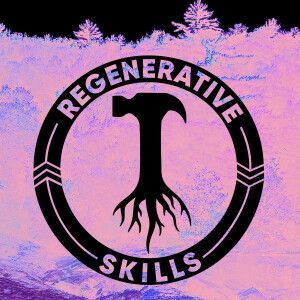
Friday May 13, 2022
Friday May 13, 2022
Over the last decade I’ve begun to see a subcategory of permaculture learning start to gain attention. As more and more people encounter the principles of this ecological design framework and experiment with different ways of applying it in their lives there’s been an emergence of social permaculture to integrate the patterns of nature to tackle inner challenges.
The wonderful book Human Permaculture: Life Design for Resilient Living by Bernard Alonso and Cécile Guiochon was my first introduction into this realm and since then I’ve wanted to bring an insight into some of the ways that the concepts of Permaculture, which were so influential in my learning almost a decade ago, could be used outside the garden.
So on a kind recommendation from David Holmgren, I reached out to Looby Macnamara, a pioneer of personal and social permaculture in the UK.
Looby is an author, facilitator, designer, gardener, and mother who has written 4 books; Cultural Emergence, People & Permaculture, 7 Ways to Think Differently and Strands of Infinity.
She first came across permaculture in 1999, and was deeply inspired by the collaborative learning environment and the focus on emerging solutions through collective wisdom.
Since then she’s been deeply immersed in the permaculture movement, and has been a trustee and chair of the Permaculture Association and senior diploma tutor. Looby has been teaching since 2002 and has run many courses including a dozen teacher trainings.
In 2016 she set up the Applewood Permaculture Centre with her family, where they run courses and grow food.In this interview, Looby walks me through her journey of learning and development of permaculture principles in the social space and how it can be applied to community dynamics and the concept of cultural emergence. We also explore how we learn from the patterns of the natural world to inform healthy personal development and much more.
Join the discord discussion channel to answer the weekly questions and learn new skills with the whole community
Links:
https://cultural-emergence.com/
https://applewoodcourses.com/
https://newsociety.com/books/h/human-permaculture
https://www.instagram.com/culturalemergence/
https://www.instagram.com/loobymacnamara/
https://www.youtube.com/channel/UCvLh8dxAZdMoxZhHCKNFkHQ/videos
https://www.facebook.com/groups/449388955801111/ https://twitter.com/permaculturemag?lang=en
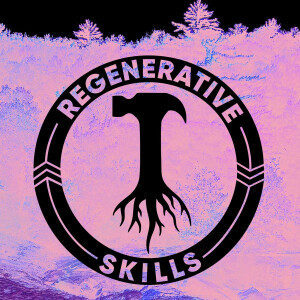
Friday May 06, 2022
Friday May 06, 2022
As I continue to explore the knowledge and wisdom of people around the world working to build and strengthen their communities, I’ve been uncovering inspiring examples of local initiatives striving for a carbon neutral future. Inspired to act by the global efforts to reduce nonrenewable fuel dependence and to uncouple their essential infrastructure from fossil fuels, communities have taken it upon themselves to do their part to transition towards a sustainable future even if governments at the national level have been lagging behind.
One of the more advanced of these community projects with a track record of enduring change and resilience is that of the community of Hepburn Shire in Victoria, Australia where a community partnership called Hepburn Z-NET is working to make the Hepburn Shire the first zero-net emission shire in Australia.
One of the people who has been instrumental in organizing community efforts to come together around the goal of net zero emissions is Taryn Lane. Taryn designed and led the Hepburn Shire Z-NET project which modeled a “whole municipality” 100% renewable and carbon-neutral pathway.
For the past decade Taryn has also managed Hepburn Wind, the first and largest community-owned renewable energy facility in Australia. The 4.1MW wind farm hosts two turbines, called Gale and Gusto, that produce enough clean energy to power more than 2000 homes. She has also undertaken a Churchill Scholarship looking at community energy projects around the world. Taryn is also a founding director of the Australian Wind Alliance and the Coalition for Community Energy.
She has recently developed two best practice community engagement guides for large scale renewable energy developments for both the Victorian Government and the Clean Energy Council. The project is open source and a best practice approach to bottom-up transition.
In this interview we discuss a wide range of topics from the more technical side like the breadth of factors in calculating the emissions impact of a community, the various technologies needed for a resilient system throughout the year, and strategic financial planning in the long term to reach goals that are out of reach at the beginning.We also dive deep into the community organization aspects which are essential to success lik gaining the trust of local residents, bringing together people from various sectors, managing expectations, and including diverse voices in each level of decision making.
I especially recommend sticking around to the end of the interview when Taryn gives her advice for people looking to start similar initiatives in their own communities and where they can find tools and resources to help them get started.
Join the discord discussion channel to answer the weekly questions and learn new skills with the whole community
Links:
http://hepburnznet.org.au/wp-content/uploads/2020/06/Z-Net_CTP_Screen-1.pdf
https://hepburnznet.org.au/
hepburnwind.com.au
https://www.instagram.com/hepburnenergy/ https://www.facebook.com/HepburnZnet
https://c4ce.net.au/knowledge-hub/
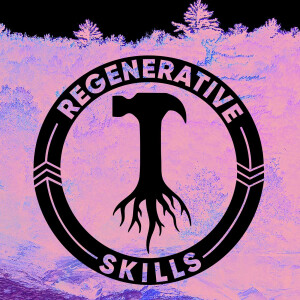
Thursday May 05, 2022
Thursday May 05, 2022
You can now get connected to the vast network of experts, consultants and coaches who are part of the Climate Farming network. We know that making the transition to profitable regenerative agriculture is hard enough, but without support from people with experience and who understand your unique context, you can waste needless time, money, and effort along the way. So don’t do it alone. Just click on the link below and we’ll help you find tailored assistance that can fasttrack your transformation and get you where you dream of going.
Click here to be matched with an expert consultant or mentor for your regenerative farm
I’ve touched on this topic briefly in previous interviews, but it bears repeating. Agriculture around the world is going through a critical moment. The skyrocketing prices of petroleum products, meaning most agriculture chemicals and fertilizers as well as machinery fuel, is causing a tipping point for many farm businesses. Operations that have long been dependent on these synthetic inputs are facing tough decisions. Do they double down and continue to keep their land on life support, sticking with the system they know, but which is becoming more and more unsustainable, or do they take a gamble on new management methods that prioritize soil biology and multiple ecosystem services?There are no easy answers since for most growers who’ve relied on these inputs for years if not decades, there will need to be a period of transition, even if they chose regenerative management, in which their yields could suffer.Luckily, there are a few well qualified professionals out there with a track record of guiding farmers through the challenge of transitioning their land management practices, and I had the chance to speak to three of them in a special panel discussion. In today’s session I’ll be speaking with Ian Robertson, Ben Taylor-Davies, and Ed Brown. Between these three fellas they have decades of experience at the forefront of regenerative agriculture, and continue to push the advancement of agroecological innovation at both the individual farm scale as well as the institutional level.
All three of these guys are good friends who attest to speaking to one another just about every day and you’ll hear the characteristics of their friendship come out in this insightful and also light hearted discussion.
Links:
https://www.regenben.com/
https://www.hlhltd.co.uk/
https://soiladvice.com/
https://twitter.com/EdCTBrown
https://www.instagram.com/eb_agroecology/ https://podcasts.apple.com/gb/podcast/boats-flerds/id1576334053?i=1000531588261
https://www.regenben.com/ https://soiladvice.com/
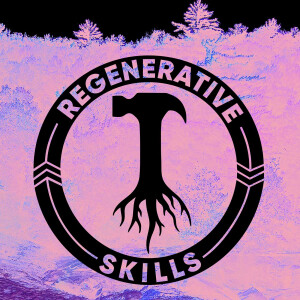
Friday Apr 29, 2022
Friday Apr 29, 2022
Learn more about the Regenerative Media Alliance and our events and resources here!
I’m very excited for today’s episode, because it’s been in the works for quite a long time.
For years I’ve been thinking about how to connect with some of the other podcasters and content producers that I’ve admired and learned from. My initial motivation after all was to contribute something to the incredible body of work being built online and made available for free. These resources are behind my own professional growth and the success of many of the projects I’ve been involved with. Eventually I wanted to take the next step and work directly with other creative producers in hopes of growing beyond each of our skill sets.
If anyone else listening is also involved in creating online content, you can probably relate to the fact that it can be quite lonely at times. I’m lucky that I get to speak with new and fascinating people all the time, but it’s almost always over a zoom call. After the episodes go live, I receive a lot of positive feedback, often from people I’ve never met as well. And yet one of the primary motivations for doing this work is to build community around the ideas and skills that are presented on the show, and for a long time I was looking for a way to work more closely with others who are motivated by the same goals.
About a year ago, I figured I’d reach out to a few of my heroes in the podcasting space to see if they’d be interested in creating a group to support one another to continue to improve the quality of our shows and brainstorm ways of supporting others, especially newer creative producers, to launch their own shows and channels, all with the vision of strengthening regenerative focused media.I was amazed to get enthusiastic replies from two of the podcast hosts that had been instrumental in the formation of my own show, and from there the idea began to grow. Little by little we overcame big time differences, conflicting schedules, and the nervousness of working with people we still didn’t know too well. Gradually, our meetings became more frequent and our little concept began to take shape and grow beyond my own initial vision.
Today I’m proud to announce the launch of the Regenerative Media Alliance. Jill Cloutier from Sustainable World Radio, Scott Mann from the Permaculture podcast, and myself. This episode is a celebration of the journey that brought us to podcast production, but also to the friendship that has grown from the development of this Alliance.If you’re unfamiliar with Jill and Scott from their shows, let me give you a quick bio on each.Jill offers solutions-oriented interviews with experts from around the globe; designers, environmentalists, farmers and earth activists who learn from and work with nature on her show Sustainable News Radio. With her guest, she explores wider questions about permaculture and sustainability, encouraging listeners to appreciate the land, water, plants, and people that sustain their lives.
When not working producing Sustainable World Radio or working at her day job as the PR Director for Explore Ecology, an environmental education and arts nonprofit, you can find her in the garden, concocting herbal remedies, creating hydrosols with a funky homemade still, or dyeing clothes with natural plant dyes.
With a background in radio, broadcasting, and technology, Scott Mann started his podcast the same week he graduated from his permaculture design course back in 2010. Originally started as a way to share what he learned about permaculture with the world, the show has since transformed to focus on interviews with world renowned teachers and authors alongside regional experts and local specialists. Through this approach, he continues to push the edge of what it means to practice permaculture on the ground and beyond the landscape.
When not sitting behind the mic or in front of a monitor editing a new episode,
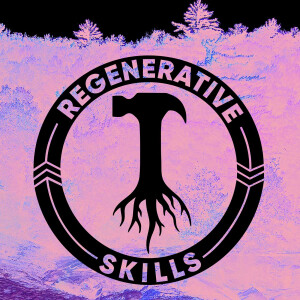
Friday Apr 22, 2022
Friday Apr 22, 2022
In today’s episode I’m going to bring us back to an aspect of strengthening community that I first began to explore in this series with David Holmgren and Charles Marhon. Back then we looked deeply into how suburbs and towns can work at a foundational level to regenerate their communities through civic planning and collaboration through each level of local government.
In today’s episode I spoke to Sarah James, the co-author of the book The Natural Step for Communities which provides inspiring examples of communities that have made dramatic changes toward sustainability, and explains how others can emulate their success.
Sarah is the principal of a city and town planning consulting firm specializing in participatory planning methods. She co-authored the American Planning Association's Planning for Sustainability Policy guide, and has published articles and given workshops throughout the United States.
In this interview Sarah breaks down the natural step framework designed to guide change makers through the process of coordinating positive change through many different aspects of their community. She recounts the inspiration she found in the eco municipalities in Sweden that she visited and the examples that prove that sustainable towns are possible.
We also navigate the obstacles that you’re likely to face in the change making process as well as strategies that have been shown to work. We also go into the mindset of successful sustainability leaders, advice for aspiring change makers, some of Sarah’s own learnings while teaching these steps, and much more.
If you’ve been following along since the beginning of the series you’ll undoubtedly be picking up on many recurring patterns in the advice and success examples from many of the interviews, and this session with Sarah is a wonderful reinforcement of these important learnings.
Links:
https://www.sustainablesweden.org/?page_id=72〈=en









